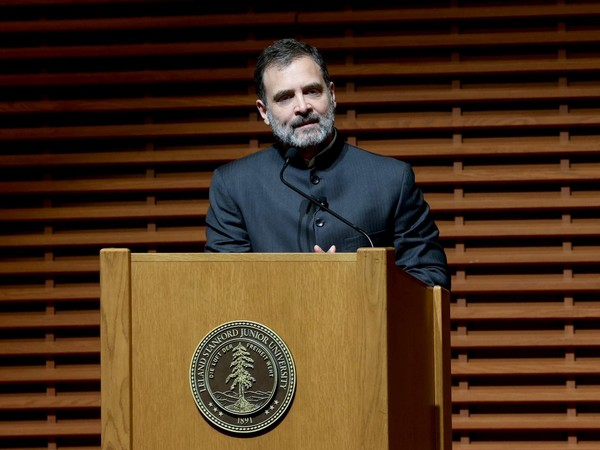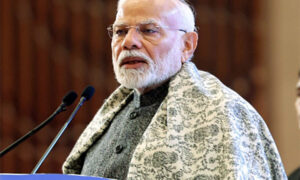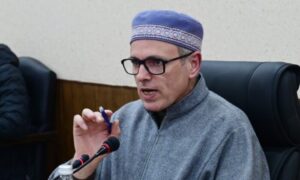
Picture : Twitter/ ANI
Former Congress president Rahul Gandhi said that he was the first person to be given a “maximum sentence for defamation” and had never imagined something like him being disqualified from the Lok Sabha, could ever happen when he joined politics two decades ago.
As per ANI report, Referring to his disqualification from Lok Sabha as a Member of Parliament (MP), Rahul Gandhi who is on a 10-day tour to the US made the remarks at Stanford University in California on Wednesday.
“I don’t think when I joined politics in 2004, I ever imagined what I see going on in our country. It was way outside what I had ever imagined,” Gandhi said.
“I was the first person to be given a criminal sentence for defamation and the maximum sentence to be disqualified from the parliament. I didn’t imagine something like this was possible. But I think it has given me a huge opportunity, probably much bigger than the opportunity I would have gotten sitting in the parliament, that’s just the way politics works,” said Rahul Gandhi.
His remarks come a day after he while addressing the Indian diaspora in San Francisco lashed out at the PM Modi.
Rahul Gandhi in March was disqualified as a member of the Lok Sabha after a Surat court sentenced him to two years imprisonment in a defamation case filed against him over his ‘Modi surname’ remark.
The decision came pertaining to his remark made in April 2019, where he had said “how come all the thieves have Modi as the common surname” at a Lok Sabha election rally at Kolar in Karnataka. The court approved Gandhi’s bail on a surety and stayed the sentence for 30 days to allow him to approach the higher courts.
In his Stanford address, Gandhi said that opposition in India is struggling and the drama started months ago.
“The drama started six months ago. We were struggling….The opposition is struggling in India. A huge financial dominance, institutional capture, struggling to fight the Democratic fight in our country. None of the systems were working,” said Rahul Gandhi.
“Democracy isn’t just about an opposition party. It’s about several institutions that support the opposition. Those institutions were either captured or were not playing the role they were supposed to play,” he added.
[the_ad id=”55724″]


















